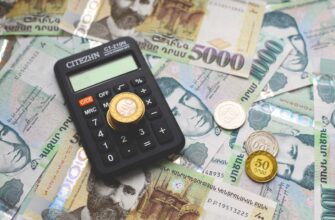As NFTs (Non-Fungible Tokens) continue to captivate investors and creators in Australia, a burning question looms: is NFT profit taxable in Australia 2025? With the digital asset market evolving rapidly, understanding the tax implications is crucial to avoid surprises from the Australian Taxation Office (ATO). In this comprehensive guide, we’ll break down how NFT profits are taxed under current Australian law, what might change in 2025, and practical steps to stay compliant. Whether you’re a casual collector or a serious trader, this article will help you navigate the complexities of NFT taxation Down Under.
How Are NFTs Taxed in Australia?
In Australia, NFT profits are generally taxable under the Income Tax Assessment Act 1997. The ATO treats NFTs as capital assets or income-generating assets, depending on your intent and activities. For 2025, while specific regulations could evolve, the core principles are expected to remain consistent. Profits from NFTs are subject to either Capital Gains Tax (CGT) or ordinary income tax, based on factors like:
- Your purpose: Are you holding NFTs as a long-term investment (CGT) or actively trading them like a business (income)?
- Frequency of transactions: Regular buying and selling may classify you as a trader, triggering income tax.
- Profit-making intention: If acquiring NFTs primarily to sell for profit, it’s likely assessable as income.
- Personal use exemption: Rarely applies to NFTs, as they’re seldom used for personal enjoyment (e.g., digital art displayed privately).
Always consult a tax professional for personalized advice, as misclassification can lead to penalties. For 2025, monitor ATO updates on crypto assets, as guidelines may refine definitions or reporting requirements.
Capital Gains Tax on NFT Profits
If your NFT activities are investment-focused, profits fall under CGT. This means you pay tax on the capital gain when you sell, trade, or dispose of an NFT. Here’s how it works for 2025:
- CGT event: Triggered upon disposal—selling for fiat currency, swapping for another crypto, or even gifting (with exceptions).
- Calculating gains: Subtract the cost base (purchase price plus associated fees) from the disposal proceeds. For example, buying an NFT for $1,000 and selling for $3,000 results in a $2,000 taxable gain.
- Discounts and concessions: If you hold the NFT for over 12 months, Australian residents may claim a 50% CGT discount, halving the taxable gain. Small business concessions could apply in rare cases.
- Tax rates: CGT is added to your taxable income and taxed at your marginal rate (up to 45% plus Medicare levy).
Record all transactions meticulously to support your calculations and leverage deductions for expenses like gas fees or platform costs.
When NFT Profits Are Considered Ordinary Income
If your NFT dealings resemble a business, profits are taxed as ordinary income. This applies if you’re a creator, frequent trader, or running an NFT-focused enterprise. Key scenarios for 2025 include:
- Creating and selling NFTs: Income from minting and selling your digital art or collectibles is fully taxable, similar to self-employment earnings.
- High-volume trading: Regularly flipping NFTs for profit indicates a business, making all gains assessable as income without CGT discounts.
- Earning royalties: Ongoing income from secondary sales (e.g., through smart contracts) is taxable annually.
Deductible expenses can offset this income, such as software subscriptions, marketing costs, or professional fees. Keep detailed logs to maximize claims and reduce your tax burden.
Record-Keeping and Reporting for NFT Taxes in 2025
Accurate records are non-negotiable for NFT taxation. The ATO requires documentation for all transactions to verify gains, losses, and deductions. For 2025, enhance your compliance with these steps:
- Essential records: Track dates, amounts in AUD (using fair market value), wallet addresses, transaction IDs, and purpose for each NFT activity.
- Tools to use: Employ crypto tax software (e.g., Koinly or CoinTracker) to automate tracking and generate reports.
- Reporting on tax returns: Declare gains or income in your annual tax return. CGT goes in the capital gains section, while business income is reported as part of your total earnings.
- Deadlines: File by October 31 if self-lodging, or align with your tax agent’s schedule. Late filings risk fines.
Start organizing now—digital wallets and exchange histories can be audited by the ATO for up to five years.
Frequently Asked Questions About NFT Taxation in Australia 2025
Q: Is all NFT profit taxable in Australia?
A> Yes, most NFT profits are taxable. If you make a gain from selling or trading NFTs, it’s likely subject to CGT or income tax, depending on your activities. Only genuine personal use assets might be exempt, but this is rare for NFTs.
Q: How is NFT profit taxed if I hold it long-term?
A> For assets held over 12 months, you may qualify for the 50% CGT discount. This reduces your taxable gain by half, lowering your overall tax liability. This applies only if classified as an investment, not a business.
Q: Can I deduct losses from NFT investments?
A> Yes, capital losses from NFTs can offset capital gains in the same year or carry forward indefinitely. If classified as a business, losses reduce your taxable income directly. Document all losses thoroughly for claims.
Q: What if I earn NFT royalties in 2025?
A> Royalties from secondary sales are treated as ordinary income and taxed annually at your marginal rate. Report them as part of your assessable income, and deduct related expenses like platform fees.
Q: Are there any tax changes expected for NFTs in 2025?
A> While no major reforms are confirmed, the ATO may update guidance on crypto assets. Monitor for changes in reporting thresholds, deductions, or definitions. Always verify with official sources or a tax advisor as 2025 approaches.
Q: How do I report NFT taxes on my return?
A> Use the capital gains schedule for investment profits or include business income in your main return. Convert all transactions to AUD using exchange rates at the time of each event. Digital tools can simplify this process.
Q: What happens if I don’t report NFT profits?
A> Failure to report can lead to audits, penalties, interest charges, and even legal action. The ATO uses data-matching with crypto exchanges, so transparency is key to avoid issues.
In summary, NFT profit is generally taxable in Australia under current rules, with CGT for investments and income tax for business activities. As 2025 approaches, stay informed through ATO resources and seek advice from a qualified tax professional to optimize your strategy and ensure compliance. By keeping meticulous records and understanding your obligations, you can confidently participate in the NFT market while minimizing tax risks.








